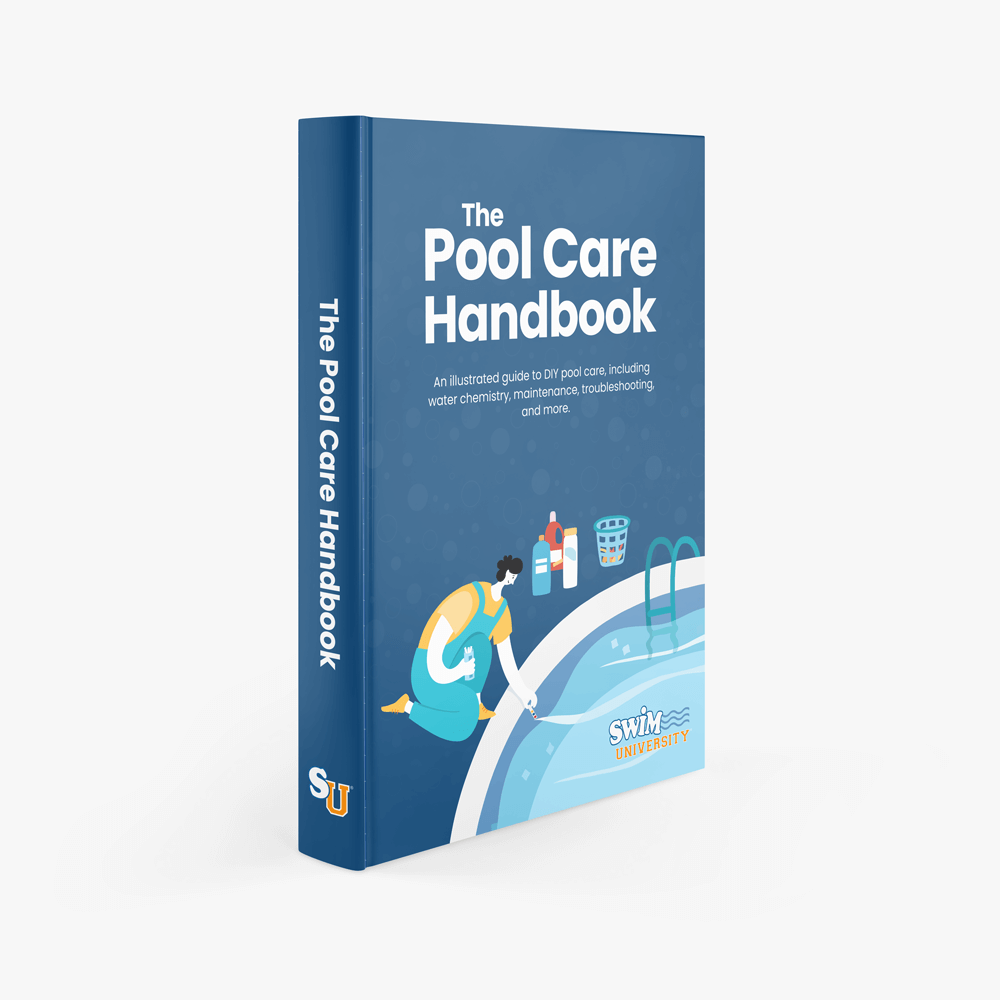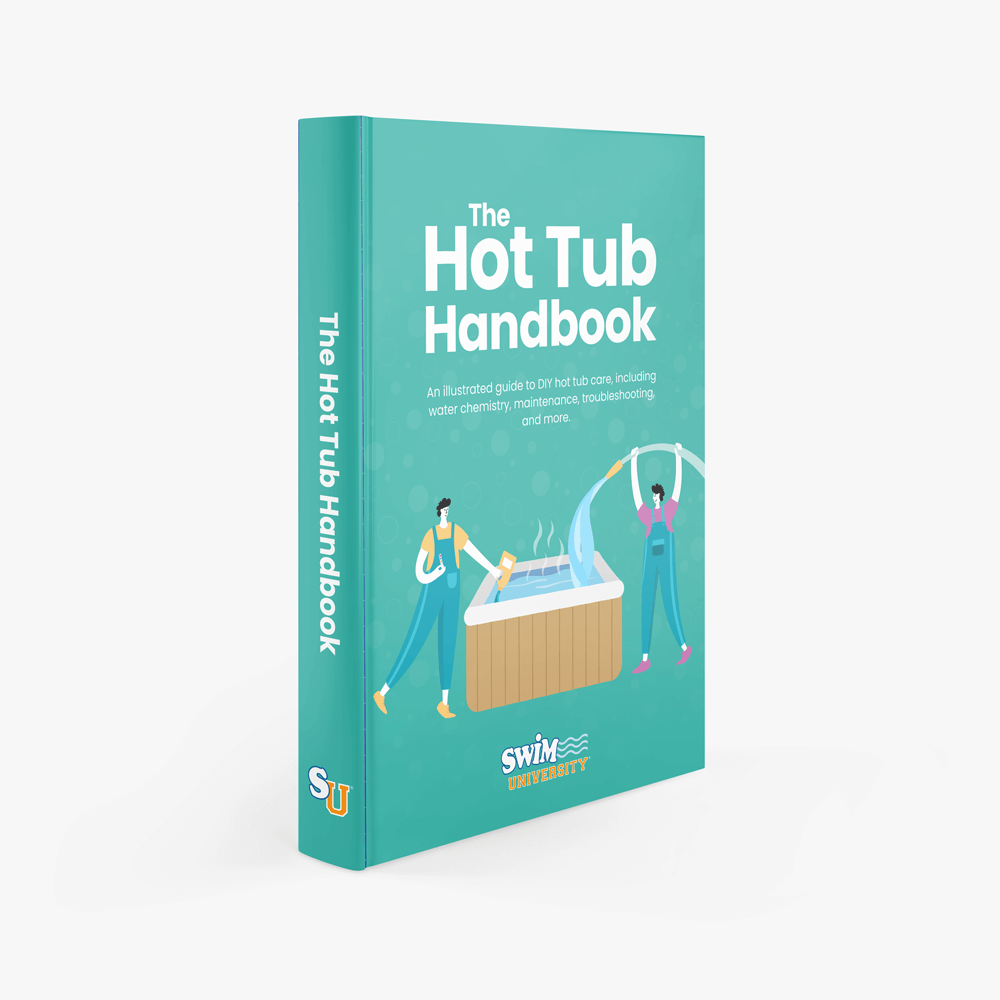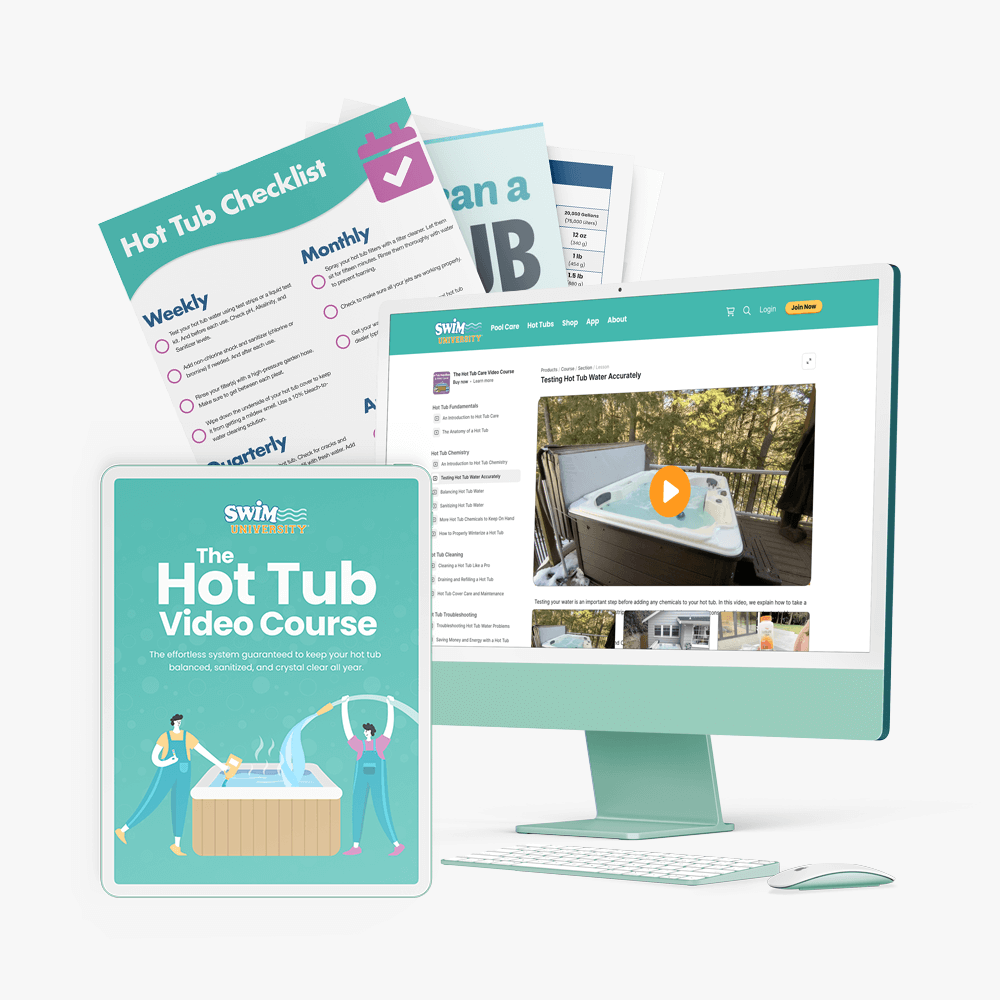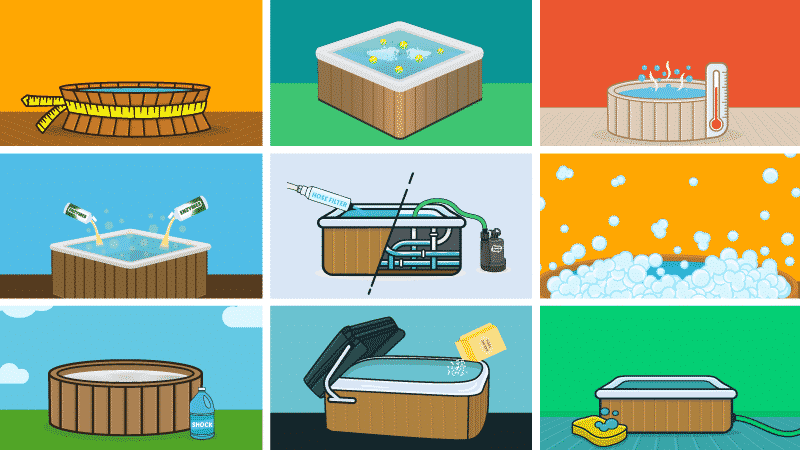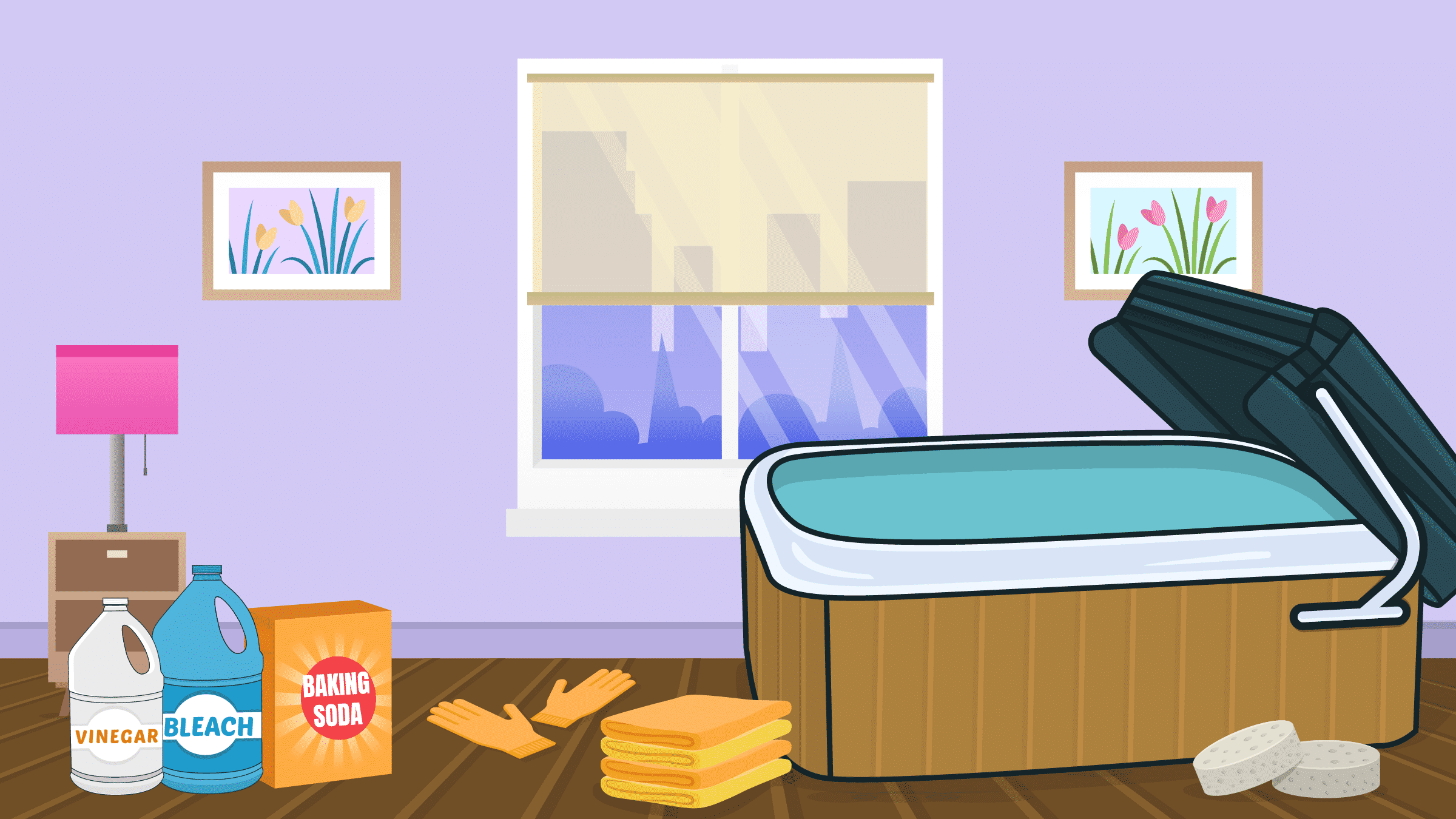How Often Should You Change Hot Tub Water?
Change hot tub water? What?! Don’t you just add a bunch of chlorine and then forget about it? Sure, if you want to eventually end up soaking in your very own miniature swamp.
But if you want to keep your hot tub—and yourself—healthy, you’ll learn how often to change hot tub water, and why it’s absolutely, positively necessary.
How Often to Change Hot Tub Water
This is probably one of the first things you wondered about when you got your hot tub. It’s a straightforward question, and the answer is just as straightforward. We recommend you completely change the water in your hot tub at least once every three months.
That’s a very general guideline, though. You can get more specific with a little data and yes, some math. Break out the calculator.
How to Calculate Water Change Frequency
Who knew that in addition to the usual uses for math—at the grocery store, when managing credit cards—you’d need it for maintaining your hot tub? Luckily, it’s not difficult.
Volume
First, you need to know your hot tub’s volume, or how much water it holds. Smaller hot tubs may need to be changed more often than larger ones. They’re smaller bodies of water, so they won’t last as long.
A 2-seater spa holds about 170 gallons (about 650 litres).
A 4-seater hot tub holds about 330 gallons (about 1250 litres).
A large spa that seats 7 or 8 people holds somewhere between 475 and 610 gallons (1800 and 2300 litres).
If you want more accurate information, you’ll find it in your owner’s manual. If you don’t have one, your hot tub manufacturer should be able to provide the volume for your model.
Bather Load
Simply put, this is how many people use your hot tub, and how often. To calculate water change frequency, you’ll just need to estimate the average bather load. You don’t need exact numbers for every day of the year.
Water Change Formula
Now that you have those numbers, here’s the fun part. The general rule of thumb is to first divide the hot tub volume by 3, then divide that number by the bather load. Like this:
Hot tub volume ÷ 3 ÷ estimated average bather load
170 gallons ÷ 3 ÷ 2 bathers = change every 28 days
475 gallons ÷ 3 ÷ 2 bathers = change every 79 days
Remember, this is simply a guideline and not a hard and fast rule. The timing may vary based on the water quality in your area, where your hot tub is located (indoors or out), and how well you take care of the water between changes.
Also, this formula isn’t the only answer to the question of how often to change hot tub water. You may run into one or more problems that require a water change outside of the set schedule.
Clouds in My Coffee … And in My Hot Tub
You’re all ready for a relaxing soak, you uncover your spa, and discover a cloudy hot tub. Not exactly inviting, is it?
You can try to clear it up with a dose of spa shock, but if that doesn’t work, it’s time to change the hot tub water.
Tiny Bubbles
Save the bubbles for the bathtub. If you suddenly find a bunch of foam in your hot tub, you have a little work to do before you can step into the spa.
First, try a foam remover. It may work, but if it does, it’ll only work for a little while because you’re treating the symptom, not the cause. To get rid of whatever it is that’s causing the water to foam up, you’ll need to change the hot tub water.
A quick relief to reduce foam in your hot tub. But not a complete remedy.
Smells Like Dirty Water Spirit
There’s no clearer sign that it’s time to change hot tub water than a foul smell. Technically, hot tub water shouldn’t smell like anything, not even the chemicals you put in it. Aside from a “chlorine” smell, though (which actually means you need to add chlorine), if the water just stinks, it could be due to a few things such as bacteria, mildew, or biofilm in the plumbing.
In any of those cases, no amount of chlorine or shock is going to get rid of the smell, or whatever’s causing it. The only way to stop the water from smelling is to change it. Change it now.
What Happens if I Don’t Change the Hot Tub Water?
Would you ever really consider not changing the water in your hot tub? Really? No, of course not. So maybe you’re just asking this out of curiosity.
OK, let’s go with that and take a look at what could happen if you just soaked in the same tub of water, day after day, week after week, month after month, never replacing it with fresh water.
Supersaturation
Water can only hold so much of other substances before it becomes supersaturated. For example, there’s a certain amount of calcium in your hot tub, in the form of a dissolved salt—calcium chloride. This is known as water hardness or calcium hardness. If you wait too long to change the hot tub water—or just never change it at all—the water will get to a point where it can no longer dissolve the calcium chloride.
Well, the calcium has to go somewhere, so you’ll start to see scaling on your hot tub fixtures, in the filter, and even in the pump. Too much scaling can eventually damage surfaces, and break equipment, costing you a lot of money in the process.
Total Dissolved Solids
Never mind the calcium buildup. Every time you soak in a hot tub, you leave behind a lot of contaminants. Sweat, shampoo, perfume, lotion, makeup, deodorant, body oils, other bodily fluids—they all end up in the spa water. These contaminants are referred to collectively as total dissolved solids (TDS).
Your sanitizer can only do so much, and even if you keep adding it, eventually, supersaturation and a high amount of TDS will prevent the water from mixing with the sanitizer.
Now the water will start to become murky, feel gritty, and possibly even smell. Yes, even if you’ve been adding sanitizer. It’s a chemical that must be balanced with the water, not a magical formula that keeps the same water clean forever.
The longer you go without changing the water, the less water there’ll be in the hot tub, replaced instead by all that other gunk until you eventually get to the point where you’re not soaking in water anymore at all. Just a goop made up of all those oils and other substances.
So, you’re going to change your hot tub water on a regular basis, right? That’s what we thought. You can also follow our guide on lowering your hot tub alkalinity.
Note: Between changes, you can keep track of how many total dissolved solids are accumulating in the water with a TDS meter.
When It’s Time to Change …
… You’ve got to rearrange. Actually, more like renew. Getting rid of old, used-up, dirty water, and replacing it with fresh, clean water will make for a much more comfortable soak. And your mind will be at ease knowing you’re not exposing yourself to a lot of nasty stuff you’d really rather not think about.
Now that you know how often to change hot tub water, you really have no excuse, either. Put it on your calendar, test the water frequently, and keep an eye out for cloudy and foamy symptoms that tell you there’s a problem. Trust us, you’ll be a lot happier, and so will your hot tub.
Happy Soaking!
3 Ways We Can Help With Your Hot Tub
- Hot Tub Cheat Sheets (Free): Easy-to-use guides to help you keep your hot tub water balanced and sanitized.
- The Hot Tub Handbook: An illustrated guide to DIY hot tub care, including water chemistry, maintenance, troubleshooting, and more.
- The Hot Tub Care Course. You’ll get step-by-step videos and a step-by-step downloadable guide with everything you need to know about hot tub maintenance.



